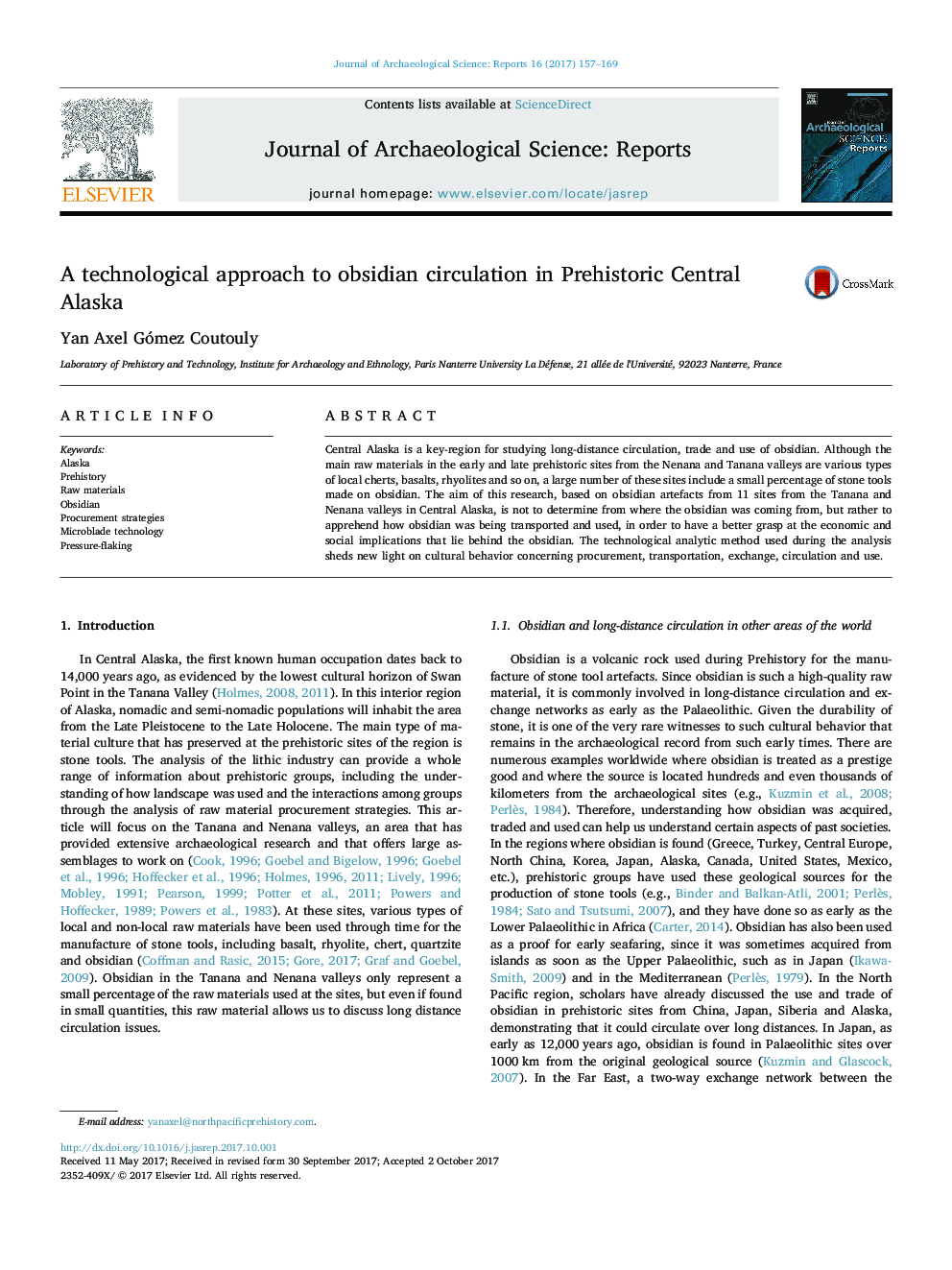| Article ID | Journal | Published Year | Pages | File Type |
|---|---|---|---|---|
| 5112159 | Journal of Archaeological Science: Reports | 2017 | 13 Pages |
Abstract
Central Alaska is a key-region for studying long-distance circulation, trade and use of obsidian. Although the main raw materials in the early and late prehistoric sites from the Nenana and Tanana valleys are various types of local cherts, basalts, rhyolites and so on, a large number of these sites include a small percentage of stone tools made on obsidian. The aim of this research, based on obsidian artefacts from 11 sites from the Tanana and Nenana valleys in Central Alaska, is not to determine from where the obsidian was coming from, but rather to apprehend how obsidian was being transported and used, in order to have a better grasp at the economic and social implications that lie behind the obsidian. The technological analytic method used during the analysis sheds new light on cultural behavior concerning procurement, transportation, exchange, circulation and use.
Related Topics
Social Sciences and Humanities
Arts and Humanities
History
Authors
Yan Axel Gómez Coutouly,
